
4 minute read
Above It All
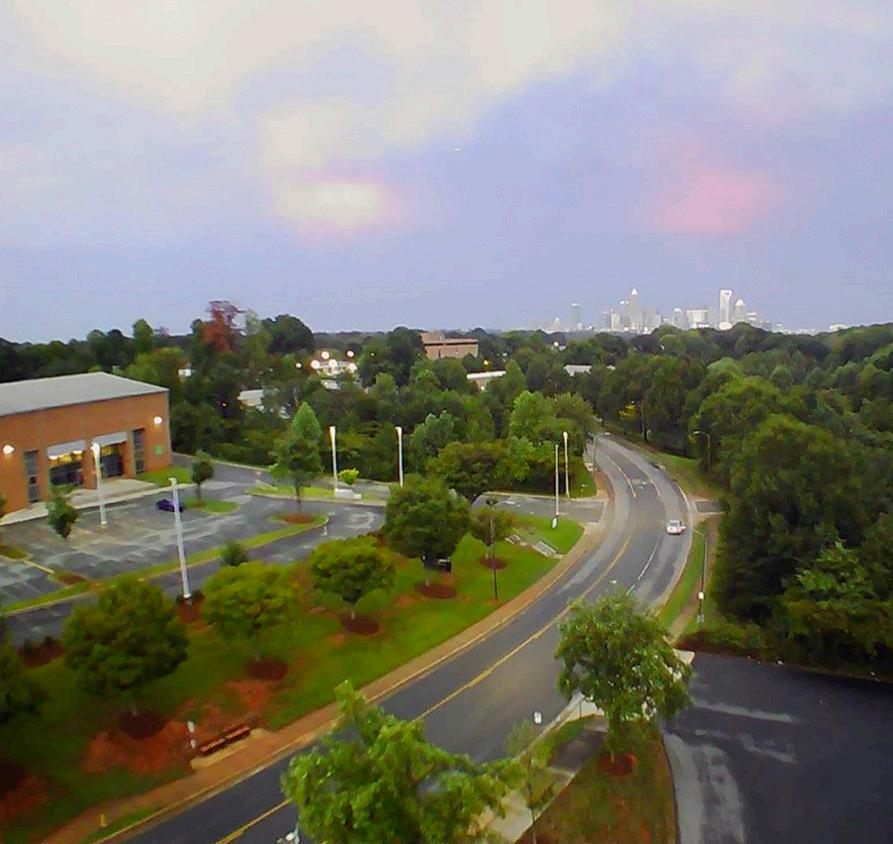
Drone aerial view of Uptown Charlotte.
Photo courtesy of Taurean Walker Drone view of Charlotte greenery and long shot of Uptown.
Photo courtesy of Joe Clemmer
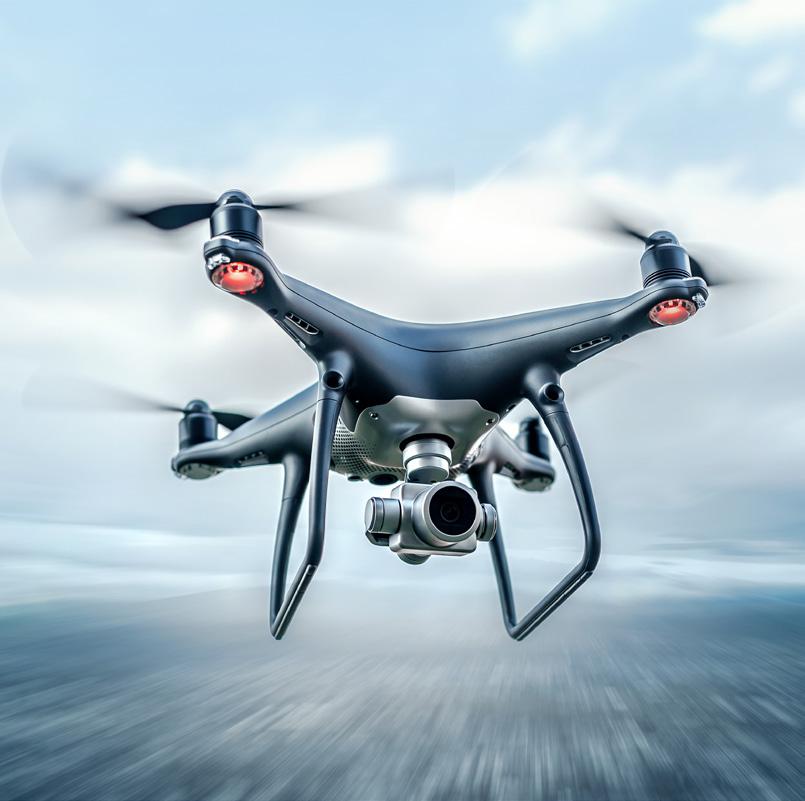
Inside Goodwill’s drone pilot training program
By Sasha Manley
Goodwill has always been known for its many thrift stores — with a wide variety of gently used clothing, home goods, electronics, books and more. But did you know they also offer training classes? Goodwill Industries of the Southern Piedmont's most recent course takes students to new heights with its free drone pilot training class.
The training
The future of aviation is happening now. Drone technology is changing the way we capture moments with pictures and video. Goodwill Industries of the Southern Piedmont (GISS) understands the importance of this technological advancement by providing this resource to the community.
Requirements to complete the Goodwill Drone Pilot course:
• Have at least an 85 percent attendance rate • Achieve a passing score (70 percent) on the Part 107 pre-test • Pass the six Performance Profile tests • Achieve a passing score (70 percent) on the FAA remote pilot test • Complete end of class practicum • Participate in a showcase
The “Introduction to Commercial Drones (UAS/Drone Part 107 Prep)” class gives students hands-on experience to legally fly manual drones in eight weeks.
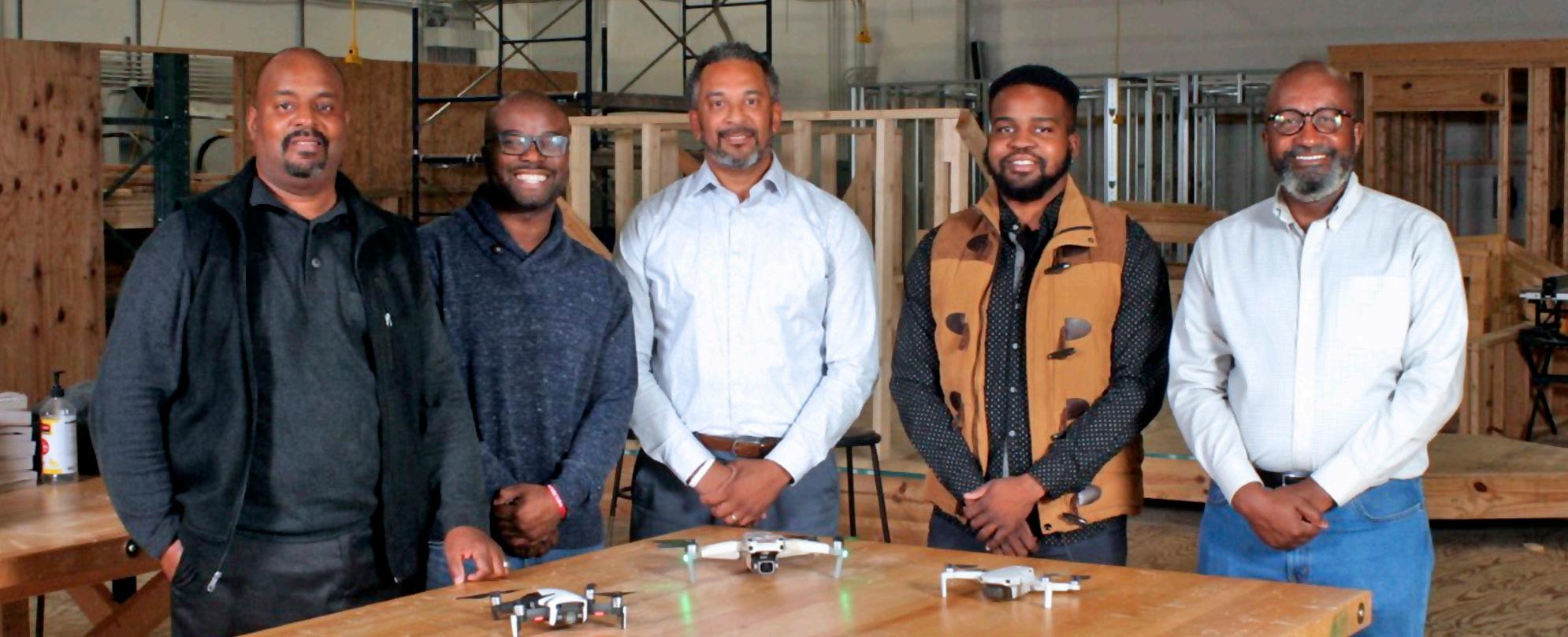
Left to right: Markus Perry, graduate of the Goodwill Drone Pilot (GDP) program; Dr. Taurean Walker, aircraft pilot and drone instructor; Marvin Kelley, director of construction and trade training at Goodwill Industries of the Southern Piedmont; and graduates of the GDP program, Rahiem Thompson and Joseph Clemmer.
With flexible scheduling, the training is offered during the evenings on weekdays to accommodate students’ work schedules and other daily obligations.
Training classes are held at the Goodwill Construction Skills Training Center at 71335 Alleghany St. in Charlotte. No prior experience is required, and all course materials are provided, including computers. Many students already have drones and bring them to class.
As a Federal Aviation Administration commercially rated pilot instructor, Dr. Taurean Walker has taught the course at local universities and colleges for four years and two years at Goodwill. “In class, we cover many aspects of aviation, including airspace, weather, weight and balance, federal regulations, flight operations and performance charts,” Walker, who has more than 2,000 hours of flight time, said.
After successfully completing the drone pilot course, Goodwill pays for students’ Part 107 certification to become an FAAlicensed commercial drone pilot. Walker explained, “It typically takes 3 to 7 weeks of preparation for the exam.”
Markus Perry, a graduate of the Goodwill Drone Pilot (GDP) program and owner of Focus Photography, first heard about the program from his wife, who saw a commercial about the course. “I felt there was more to me. I’m now in a space where I want to do something meaningful and purposeful.”
As a retired captain with the Gaston County Sheriff’s Office, graduate of the GDP program Joseph Clemmer was looking to add another skill and profession to his resume. “I was getting bored, having been retired for two years, and decided to find something to keep me busy,” he said. Clemmer and Perry were classmates and completed the course in the fall of 2021.

Up to 100% financing No mortgage insurance No down payment
* Loan originations are subject to underwriting and credit approval. Other terms, conditions and certain fees may apply.
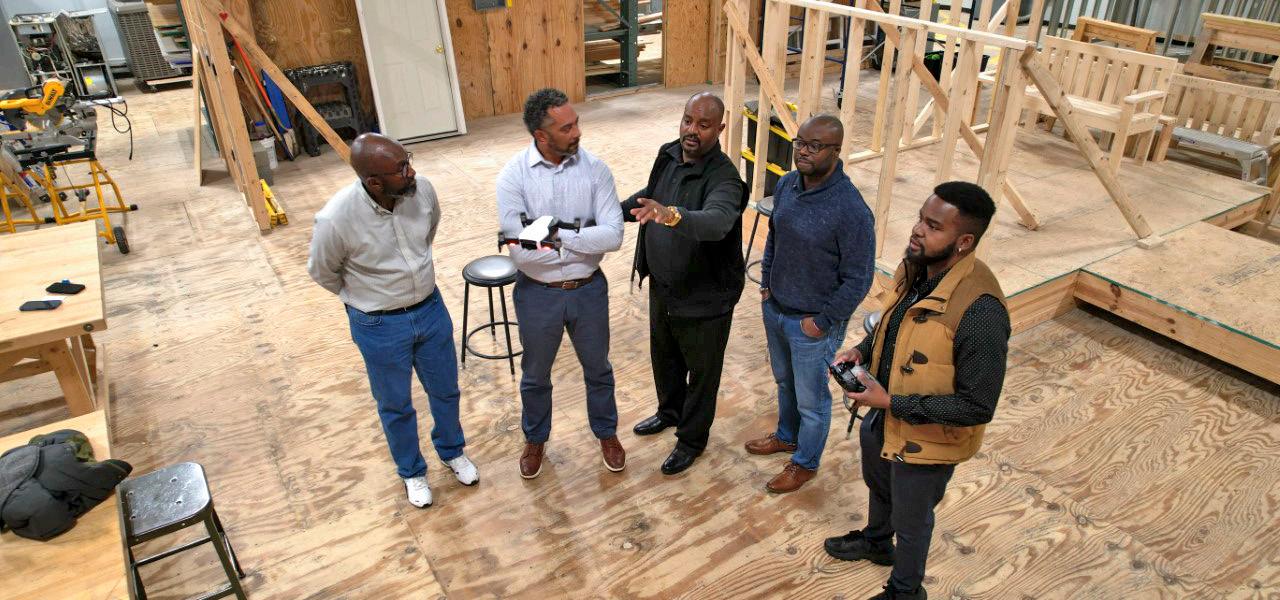
Aerial drone shot of (left to right): Joseph Clemmer, Marvin Kelley, Markus Perry, Taurean Walker and Rahiem Thompson
Photo courtesy of Markus Perry
To be a drone pilot: the benefits
With only 10 to 20 students per class, those enrolled can expect to receive the attention they need to be successful graduates.
Perry said the course has greatly expanded his business. As a result of taking the course, he’s had several new opportunities, such as shooting commercials, shooting 46 acres of land for sale and speaking engagements. “I put the drone in my toolbox as an extension of my photography business.”
Clemmer is now a drone pilot with Duke Energy, inspecting power lines and equipment on service poles in North and South Carolina. Next, he plans to open his own business doing inspections and events.
Becoming lifelong friends has been a special bonus for the two men. Perry and Clemmer meet regularly with classmates and instructors for continued support with their careers. “I have been blessed to find a new career in the drone industry and have shared this journey with some brothers that make it more exciting and fun,” Clemmer said.

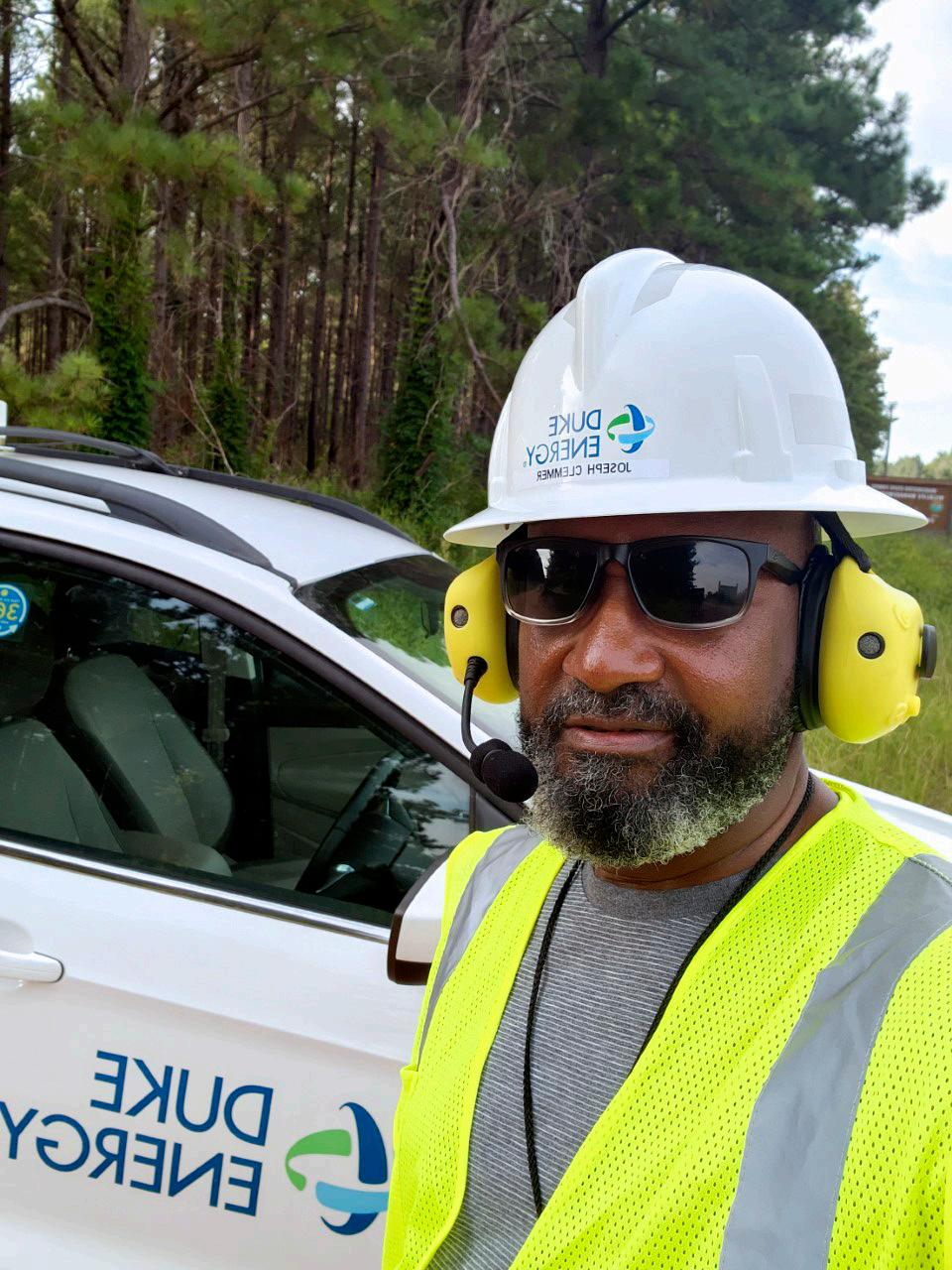
Photo courtesy of Joseph Clemmer Joseph Clemmer, Goodwill Drone program graduate
Career goals
There are so many career opportunities in the drone industry. Walker offered a short list of possible commercial drone professions: • Real estate photography • Aerial mapping and photogrammetry • First responder drone pilot • Insurance inspector • Traffic reconstruction
When asked where he sees drone technology going in 5 to 10 years, Marvin Kelley, director of construction and trade training with GISS, said drone technology will be constantly evolving.
“In the construction industry, drones will be utilized for site surveys to increase efficiency, lower costs, increase accuracy and improve photographic visualization,” he said. Drones may also be used for disaster management, and for security and surveillance to “gather information in high crime areas,” he added. P










